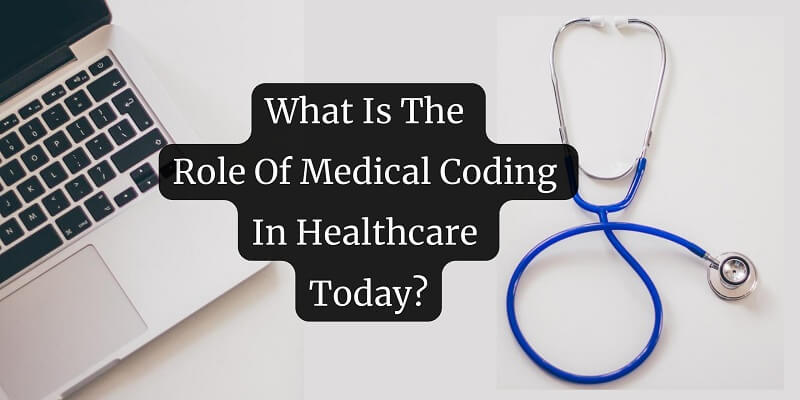Hey guys, in this article, we are going to discuss the role of medical coding in healthcare today. So keep reading.
It’s no surprise that the healthcare market is thriving, and this trend is anticipated to continue. In the US, with a population of 46+ million aged 65 and over expected to quadruple by 2060 and 68% of them suffering from two chronic conditions, the demand for health practitioners is unlikely to decrease anytime soon.
Medical coders are responsible for a complex system with thousands of codes. Your problem-solving abilities will aid you in completing your work efficiently. Fortunately, you’ll have access to databases of codes that match the procedure. The International Classification of Diseases Index is the official name for these (ICD).
Medical coders might work in several contexts in the healthcare field. Also, you can work at hospitals, clinics, doctors’ offices, or at home. Medical coding demands highly-trained individuals who can swiftly read, analyze, record, and manage complex medical data while maintaining patient confidentiality and paying close attention to detail. Patient safety, prompt payment, and efficient operations depend on accuracy in each area.
What Is The Role Of A Medical Coder?
Medical coders utilize EMR/EHR technology to maintain a record of patient health information and get reimbursement for services done by health providers. Furthermore, Medical coding specialists update patient data by entering diagnostic codes and a list of operations done. Besides this, Medical facilities, hospitals, rehabilitation institutes, and insurance companies are joint employers for such professionals. Although they are accountable for the electronic upkeep of data, certain medical offices may nevertheless need them to fill out paperwork.
The most important responsibility of a medical coder is to guarantee accurate coding so that billing and medical information can be appropriately updated. Moreover, Precise data is required to guarantee that patients receive adequate care and that insurance companies can handle claims. Medical coding professionals must also learn security measures to assure compliance and preserve patient information.
Important Responsibility:
In addition, the following responsibilities are included:
- Examining medical records
- Choosing the correct code for a patient’s file
- Insurance companies must use specific codes.
- Interaction with healthcare professionals and assistants to verify data correctness.
- Keeping track of the information throughout each patient visit
- Organize the coded data
- Maintain the privacy and security of patient information.
- Examine files and reports for errors.
- Assign codes for illness diagnosis and therapy.
- Follow up on code updates regularly.
- Analyze and organize patient information for future studies.
- Medical coders work in any setting that delivers medical billing and medical coding outsourcing, including BPOs. Medical facilities, hospitals, hospices, and RCM firms are all included.
- Some insurance companies also employ medical coders to verify the correctness of specific patient claims.
- The medical files they work with are extremely sensitive; medical coders have stringent ethical standards.
- They also pay close attention to the reports because even a minor miscalculation might result in a significant income loss.
- As a result, they maintain their concentration because their work is vital.
Medical coders must have the following technical skills:
- Current Procedural Terminology or CPT coding
- Patient billing
- ICD9
- ICD10
- Inpatient coding
- Outpatient coding
- Clinical anatomy
- Clinical documentation
- Healthcare Common Procedure Coding System
- HCPCS Level 2 coding
- Healthcare IT
Let’s look at how medical coding services are essential in modern medicine.
1. Patient Care
Medical coding converts data from various sources into codes, including medical notes, e-notes, lab findings, and transcriptions. Besides this, The codes are transferred from the source information to these specialists’ billing software and clinical documentation. Coding is essential since it impacts medical care and, more importantly, medical payments. Insurers obtain the correct codes for payment when medical coding is done correctly. Coding is also essential for studying illness prevalence, treatment results, and demographic evaluation.
2. Continuity Of Payment
Private insurers now update their medical issue and plausible deniability standards weekly, if not more frequently. Data analytics allows coding teams to predict payer transitions and discover denied or underfunded claims much faster. Also, using this knowledge to manage financial and medical risks effectively will be critical to winning.
Providers, coders, and payers are being challenged to modify their conventional roles within the healthcare ecosystem as accountability and risk are shared more widely across the healthcare continuum. As previously said, coding professionals require committed instructional initiatives more than ever before to enhance coding productivity and accuracy, generate income, and reduce compliance difficulties.
3. Regulatory Compliance
Government regulations may make medical coding essential, and most nations require patient data protection to safeguard sensitive information. In addition, healthcare professionals are obligated by insurance contracts that stipulate fees for medical interventions. Besides this, Doctors may maintain contractual compliance through correct coding and invoicing, and work can be completed on schedule.
Medical coders must follow HIPAA and other regulations. Furthermore, HIPAA is a federal statute that requires the development and implementation of national standards to protect personal health information (PHI). Moreover, HIPAA protects patient confidentiality while simultaneously protecting EHR systems.
Medical coders must guarantee that the data they use is secure and that it is not accessed by anybody who does not have the necessary permissions. Besides this, HIPAA regulates the Healthcare Common Procedure Coding System (HCPCS) Level 2, CPT, and ICD-10-CM.
Conclusion
Accurate medical coding enables healthcare providers to continue doing their best without getting hassled with issues related to billing compliance, data security, and more. Outsourcing this crucial function saves time and boosts revenue. I hope you liked this article on the role of medical coding in healthcare today. Thanks for reading!


